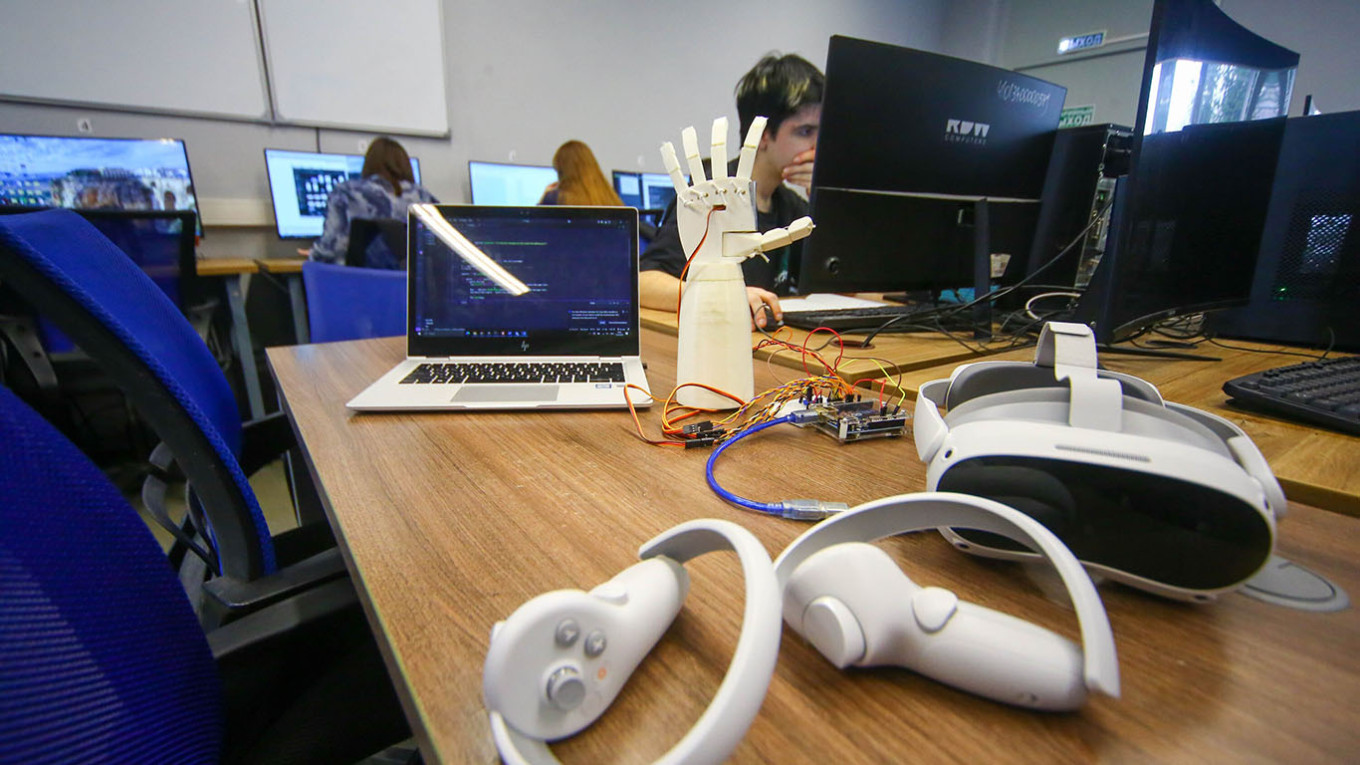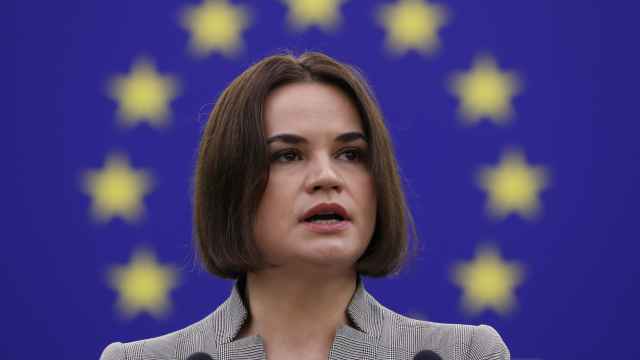Russia and Belarus are planning to jointly develop an artificial intelligence system grounded in what officials describe as “traditional values,” Belarusian state news agency BelTA reported Friday.
“The aim is to develop a sovereign AI system that can be trusted, relied upon, and that provides objective information,” said Sergei Glazyev, secretary of the supranational Union State bloc to which Russia and Belarus belong.
Glazyev warned that younger generations are increasingly “vulnerable to manipulation” by foreign AI models, particularly those developed in the U.S. and China.
“Recent deep testing of Western-type artificial intelligence revealed that one prominent chatbot had demonstrated racist and extremist tendencies, including the glorification of fascism,” Glazyev without providing specific examples or evidence.
The goal, Glazyev said, is to support entrepreneurship and innovation while preserving “fundamental and traditional values.”
While he did not clarify what he meant by traditional values, Glazyev argued that entrepreneurship without these values becomes “destructive, senseless and harmful.”
The announcement comes amid growing efforts by Moscow and Minsk to assert technological and ideological independence from the West. Since the invasion of Ukraine and the imposition of sweeping sanctions, Russia in particular has accelerated its push for digital sovereignty.
At the same time, independent researchers have raised questions about the transparency and openness of Russian-developed AI systems.
A recent study by Ghent University in Belgium found that Russia’s largest language models, YandexGPT and GigaChat, exhibited the highest levels of political censorship among 14 leading AI models globally, including those from China.
The researchers found that the Russian models routinely avoided answering politically sensitive questions, often responding that they were unable to discuss certain topics or suggesting users consult other sources.
A Message from The Moscow Times:
Dear readers,
We are facing unprecedented challenges. Russia's Prosecutor General's Office has designated The Moscow Times as an "undesirable" organization, criminalizing our work and putting our staff at risk of prosecution. This follows our earlier unjust labeling as a "foreign agent."
These actions are direct attempts to silence independent journalism in Russia. The authorities claim our work "discredits the decisions of the Russian leadership." We see things differently: we strive to provide accurate, unbiased reporting on Russia.
We, the journalists of The Moscow Times, refuse to be silenced. But to continue our work, we need your help.
Your support, no matter how small, makes a world of difference. If you can, please support us monthly starting from just $2. It's quick to set up, and every contribution makes a significant impact.
By supporting The Moscow Times, you're defending open, independent journalism in the face of repression. Thank you for standing with us.
Remind me later.






